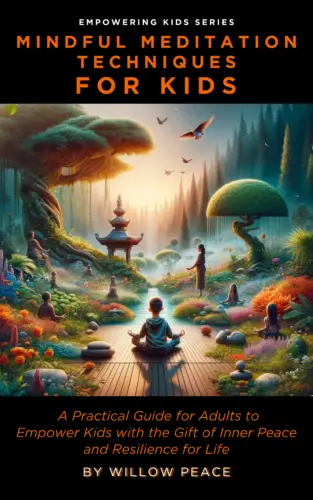Guest Writer for Wake Up World
Do you know what an abacus is?
It’s essentially an old school bead-based calculator. You move a bead to one of two sides to keep the tally. The implication of this tool is that the total number of beads stays the same…they just get moved around within the frame.
Could the abacus be some sort of analogy for our own personal energy metrics—that what we give is taken from us?
As someone who used to ignore messages and signs that I was overextending, who used to “do it all,” and who suffered from no small amount of productivity addiction, take it from me: your decisions count, they cost, and they keep you stuck.
Multitasking mania
We are in a weird and wild time. A friend showed me a picture of a t-shirt with a picture of a cup of coffee and a glass of wine with the caption,“how I tell time.” Is this how it’s meant to be? Just get by until you die? I reject that. I bet you do, too. But we are all, at least most of us in westernized countries, struggling with the syndrome of our time…it’s called overwhelm.
Psychiatric drug manufacturers love this syndrome because it sends you right into their hands. Stimulants to increase your focus and task-orientation, antidepressants to take the edge off of all that feels intolerable, and benzos to silence your blaring internal alarm system. Is it possible, however, that overwhelm is a wise response to a real problem? The problem, which comes with the illusion of control and mastery as a source of happiness in life, is one of hyperstimulation coupled with indiscriminate choices of where to put our attention.
We’ve been sold a pile of lies predicated on our fear response. Media has us by the throats, hanging over a barrel of horrors. We are kept jumping at every beep, bing, and bong our technology makes because we are enculturated to feel like we might otherwise miss out. We stay in toxic relationships because it seems easier than leaving. We go to jobs that suck because we can’t envision the escape hatch. We are prisoners in a cell with a wide-open door, although we don’t know that we can just. Walk. Out. But how?
As an adult, did you ever have that moment of remembering the rules, curfews, and harsh expectations of your teen years as you sat somewhere, totally alone…working? Like, now no one tells you what to do, where you can go, or what time to be home, but what do we do with that freedom? We check Facebook, watch TV, and work. The devil on our teenage shoulder is pretty disappointed in the lack of fun in our lives. We have let overwhelm jail us in a state of treading water and barely getting by.
We think we need to “unwind,” but what we really need is to get in our flow so that life stops feeling like an empty shlog. So that we stop bleeding our life force energy all over the path of our journey.
Losing you in the blur
Over and over again, I hear from my patients and online program participants: I finally feel like myself. Turns out that this experience of self-authenticity is all we really want. It feels like your core is strong, resilient, and solid…like “you’ve got this”. It feels like comfort in your own skin. It feels clearer and emptier in the best possible way.
The cost of multitasking, overcommitting, and staying stuck is massive. It’s literally the cost of you-ness in the world. You get lost because you only have the energetic capacity to react defensively to everything that is coming at you. And your soul does not like that. So you will inevitably manifest symptoms and sickness as a wake-up call…an invitation back to basics.
I believe in an order of operations for rehabilitating your life experience. First things first, heal your body. Why fight upstream? What if your cloudiness, irritability, moodiness, and insomnia are all simply your body-mind’s way of responding to blood sugar imbalance? Wouldn’t it feel easier to address these bigger picture questions and issues if you could simply choose to commit to (an uncomfortable level of) self-care for one month? Do that first.
What you’ll find is that then you will feel like a reserve vessel of energy has been unlocked. Then all the various dynamics in your life that you felt trapped by feel like choices you can either continue to make or can choose differently around.
When you’re ready, here are my top five recommendations for where to begin to stop the drains…or at least take inventory of the present damage:
Energy drains
Discernment
I’m not a perfectionist. Never have been. I have long subscribed to the “better done than done perfectly” school of living, and have practiced the fine art of Inbox Zero since my first email address. But I got to a point where I was living on adrenaline. It was like uterine contractions without a break in between them. And I had no idea how to turn off that stress response. I felt like I just had to keep running like some horror movie where the creepy clown is always showing up in the rear view mirror.
Two of my beloved team members recommended the book Essentialism to me. A productivity book? “I slay my to-do list,” I thought, “why would I need to read this?” Turns out I did need to read it. For me, it was a game changer. Primarily because it taught me the secular value of a spiritual concept I’d been familiarizing myself with through other channels…discernment. Basically, it’s the skill of knowing when (and how) to say NO. At the same time, I had a Human Design reading wherein I was told to “stop doing things just because you can”. In fact, he went further, and said, “you must ONLY say yes to things you enjoy”. Well that’s pretty unrealistic. What about the long list of things I “have” to do?
Expectations
Turns out there’s some epic rewards in truly sitting with the discomfort of not fulfilling these obligatory things only to realize that you never really had to do them to begin with. Anything from your kids’ school Bingo night to participating in family Christmas materialism. There’s an unexpected challenge that arises when you stop doing things that you don’t actually want to do—you stop complaining. And our culture runs on whining. In fact, complaining was part of how I smalled myself for years…how I made myself more palatable and less threatening to others…or so I thought. I thought it humanized me. But, in fact, it just creates a blur of ingratitude that smears your life with more to be ungrateful about.
It’s equally uncomfortable, for a period of time, to tolerate the imagined disappointment, judgment, and maybe even anger and rage that we imagine might come from not meeting the expectations of others. From not serving them and their needs. There are dynamics that emerge between those who feed off of the energy of others deeply invested in finding their self-worth through helping, serving, or fixing. There is a type of service—volunteering, for example—that fills you with energy. And there’s a type of relationship dynamic that can feel like the energy is sucked out of the room by the volatility and neediness of the other.
Mind-reading, strategizing, and guessing what others—family, friends, lovers, bosses—want from us costs us a lot of energy. So does stabilizing toxic relationships; one of my friends lost 30 pounds within a month of leaving her husband and literally looked 25 years younger. Get in touch with what you want first, trusting that you will ultimately be surrounded by those who want the same for you and for themselves.
Resentment
I come from Irish/Italian stock. We do grudges and intergenerational rage as a lifestyle. I never traveled far without my bag of grievances, always collecting evidence for who wronged me, when, and how—always committing it to my elephant-like memory. We have our stories, our perspectives, and our sides to defend, but what does it cost us to carry that? It’s like that Zen tale of the two monks crossing a river: One helps a woman across, and hours later the other, clearly stewing in judgement, asks why he helped her given their vows to avoid contact with womankind. In response the older monk looked at him and replied, “Brother, I set her down on the other side of the river, why are you still carrying her?”
We carry those we feel affronted by with us. It’s why I changed my approach as an activist to focus, not on fighting Pharma, but on celebrating radical healing. It’s why I walked away from a financial lawsuit over an unpaid speaker fee, and why I decided to start fresh with my own brother.
When I feel pulled into keeping score, blaming, or resentment, I stop, drop, and do this cutting cords meditation recorded for me by one of my beloved teachers, Joseph Aldo. It. Works.
Hiding
Got secrets? We all do. Some of them are real deep. Some of them relate to our daily habits. Let me tell you that it’s time to claim this baggage. We are in sociocultural stew of exposes and truth telling. More and more of us are learning that owning up and coming clean feels better than you could have ever imagined it would. And it’s simply because of the energetic cost of suppressing, curating, and navigating life with these held omissions.
Shy of big reveals, hiding can take on emotional drainage weight in relationships. If you’re a private, withholding type, consider using simple phrases of acknowledgement for where you’re at. I call it “bridge intimacy,” and it’s a way to simply be real without feeling like you have to know what it is that you’re even being real about! It’s saying,”I feel funky right now, and I don’t know why” or “What you said is hurtful, but I’m not ready to talk about it”. It could even be an “I’ll get back to you” rather than a non-response that you then chew on for days. This way you’re not wasting energy composing your magnum opus of emotional clarity or putting undue pressure on yourself to perform perfectly on the spot.
Relatedly, there’s lying. What if you’ve gone beyond, “not saying” into the realm of falseness? Maintaining the parallel universe of your lie reality is literally like donating a vital energetic organ. It is so draining. Personally, I’ve committed to never lying, and for me the big change is in micro-lies around logistics. I have lots of folks asking me for lots of things. For years, I’ve stretched the truth around why I couldn’t meet their expectation, demand, or desire. But, it turns out that there are ways to say no without lying! Try this one on: “That’s not going to work for me”. True without being aggressive, you’ll find people are refreshed by dialogue without excuses. It turns out that people hate when you say you’re “too busy.” They hate it because they know it’s a lie. We are never to busy to do the things we really want to do. We have near-magical abilities to expand time to create space for new experiences if we choose. So, if you get an internal “no,” then be as real as you can in communicating that. It will set you free.
Distraction
I consume A LOT of content. I read dozens of medical journal articles, one to two books, podcasts, and lectures every week. I love learning. I love words. I also run a practice and online education and healing platform while maintaining my roles as an author, partner, friend, and mother. Let me tell you that there are some serious digital hacks that can literally spring space into your life out of the void:
- Write everything down, even things that you think you will remember. Everything. I keep digital lists, and I always have a pen and paper. I make lists ranging from “cut your nails” and “drink water” to “text Tahra”. When I’m in Kundalini class, I’ll clear any to-dos or even inspirations that come to my mind by jotting them down on a paper next to me. Same goes for before bed.
- #unsubscribe. It’s my sincere hope that my newsletter brings inspiration, insight, and vital information to help you navigate your journey. If it doesn’t, then please unsubscribe. And do that for any and every email that you don’t love. This summer, I unsubscribed to 175 different lists I had said yes to as some point in my learning curve, and even though I actually got a few personal emails expressing disappointment in me (seriously), this simple effort literally changed my life. It costs to swipe left dozens of times a day. It costs your energy to have thousands of unread emails yanking on your skirt like needy, grubby, little creatures.
- Organize your phone and your desktop. We think we are on autopilot just getting to the content, but our brains are master filters of information. And your brain sees your desktop and your phone that has eight scrolls to the right of apps and red flag notifications all over the place. Delete anything and everything you haven’t used in the past four months. Organize the rest into logical folders. Turn off notifications that you are not willing to respond to in a timely way.
- Wait to dive into your inbox/phone in the morning. This is a tough one for me. You may know that I am a passionate believer in early morning meditation because, well, it changed the stress game for me permanently. Brush your mind like you brush your teeth. Clear it, empty it, soothe it, and then begin the processes above, for your day. It’s like dancing forwards instead of backwards and blindfolded.
Moving beyond the abacus
Here’s the big reveal: Once you get your abacus in order and reclaim beads you were unconsciously pushing to one side, you begin to move beyond the limited metrics of a quantifiable energy reserve.
You begin to enter your flow.
I’ve bet you’ve heard of this flow concept but maybe you think it’s synonymous with “success.” It’s not. Getting into your flow is tapping into energy that’s not inherently yours. It’s ours. It belongs to the collective. Arranging your finite energy dispensation on the abacus is sort of like particle-based physics. You know, Newtonian physics where we thought mass was what it looked like—solid and finite. But then there’s the study of all that defies linear cause and effect: quantum physics, where “the field” organizes itself, donating mysterious and near-invisible sources of energy to those seemingly solid particles for outcomes that would have been otherwise impossible to predict. The rules of the abacus change: the less you do, the less you control; the simpler and quieter you get, the more magically gets done; and the greater your sense of safety, the more abundant and rich your life experience. Pretty awesome.
This is what it means to get out of your own way and to sign up to simply ride the wave. This is a type of lifestyle wherein nothing is simply good or simply bad, but part of a greater design that you cannot envision from your standpoint. In this model, you are supported by a bigger web of organization. You are a part of some greater whole. And you are delivered exactly what you need, exactly when you need it. And you feel that.
Accessing this flow can be a spontaneous awakening, or it can be, as I witness daily in my clinical approach to healing, a natural outcropping of physical healing and a truce with your body. It’s a way of sensing the path of your life through portals other than your eyes and ears. It’s about the power of your clear mind to literally generate potential and possibility that shouldn’t logically be there.
So take inventory on your mental and emotional tenants. Make sure you want to renew their lease. And see what life would feel like if you sent them packing and let nature grow some breathtaking scenescape where those dingy tenements once loomed.
Originally published at kellybroganmd.com and reproduced here with permission.
Recommended articles by Kelly Brogan, M.D.
- Adverse Effects of Antipsychotic Drugs in Children
- Your Microbiome on Drugs
- Oops! The Brain DOES Have An Immune System
- Is Your Prescription Drug Causing Your Depression?
- Contraception Depression: Can the Pill Affect Your Mood?
- A Time for Rain: Teaching Our Children About Sadness
- Psychobiotics: Bacteria for Your Brain?
- Vitamin B12 Deficiency: A Trigger for Depression and Anxiety?
- The Violence-Inducing Effects of Psychiatric Medication
- Fear Is The Sickness
About the author:
Kelly Brogan, M.D. is a holistic women’s health psychiatrist, author of the NY Times Bestselling book, A Mind of Your Own, the children’s book A Time For Rain, and co-editor of the landmark textbook, Integrative Therapies for Depression. She completed her psychiatric training and fellowship at NYU Medical Center after graduating from Cornell University Medical College, and has a B.S. from M.I.T. in Systems Neuroscience. She is board certified in psychiatry, psychosomatic medicine, and integrative holistic medicine, and is specialized in a root-cause resolution approach to psychiatric syndromes and symptoms. She is on the board of GreenMedInfo, Price-Pottenger Nutrition Foundation, Functional Medicine University, Pathways to Family Wellness, Mindd Foundation, SXSW Wellness, Chickasaw Nation Wellness, and the peer-reviewed, indexed journal Alternative Therapies in Health and Medicine. She is Medical Director for Fearless Parent and a founding member of Health Freedom Action. She is a certified KRI Kundalini Yoga teacher and a mother of two. For more articles, sign up for her newsletter at kellybroganmd.com.
What if slowing down could improve your energy, health, and relationships? In this free online event, you’ll learn how The Slow Method — rooted in Qigong, Taoist philosophy, and breathwork — helps reduce stress, boost vitality, and create a sense of peace in your daily life.
Through guided Qigong practices, you’ll discover how to activate your body’s natural healing abilities, improve emotional balance, and even slow the aging process. Slowing down doesn’t mean falling behind — it’s a powerful way to regain clarity, connection, and energy.
Join this transformative workshop and experience how simple practices can change your life. Sign up for free now and discover the counterintuitive path to healing and vitality.
 If you’ve found value in our articles, we’d greatly appreciate your support by purchasing Mindful Meditation Techniques for Kids—A Practical Guide for Adults to Empower Kids with the Gift of Inner Peace and Resilience for Life.
If you’ve found value in our articles, we’d greatly appreciate your support by purchasing Mindful Meditation Techniques for Kids—A Practical Guide for Adults to Empower Kids with the Gift of Inner Peace and Resilience for Life.
In the spirit of mindfulness, we encourage you to choose the paperback version. Delve into its pages away from screen glare and notifications, allowing yourself to fully immerse in the transformative practices within. The physical book enriches the learning process and serves as a tangible commitment to mindfulness, easily shared among family and friends.
Over the past few years, Wake Up World has faced significant online censorship, impacting our financial ability to stay online. Instead of soliciting donations, we’re exploring win-win solutions with our readers to remain financially viable. Moving into book publishing, we hope to secure ongoing funds to continue our mission. With over 8,500 articles published in the past 13 years, we are committed to keeping our content free and accessible to everyone without resorting to a paywall.









